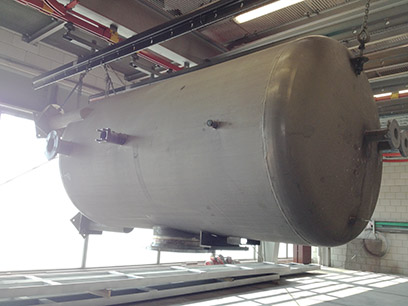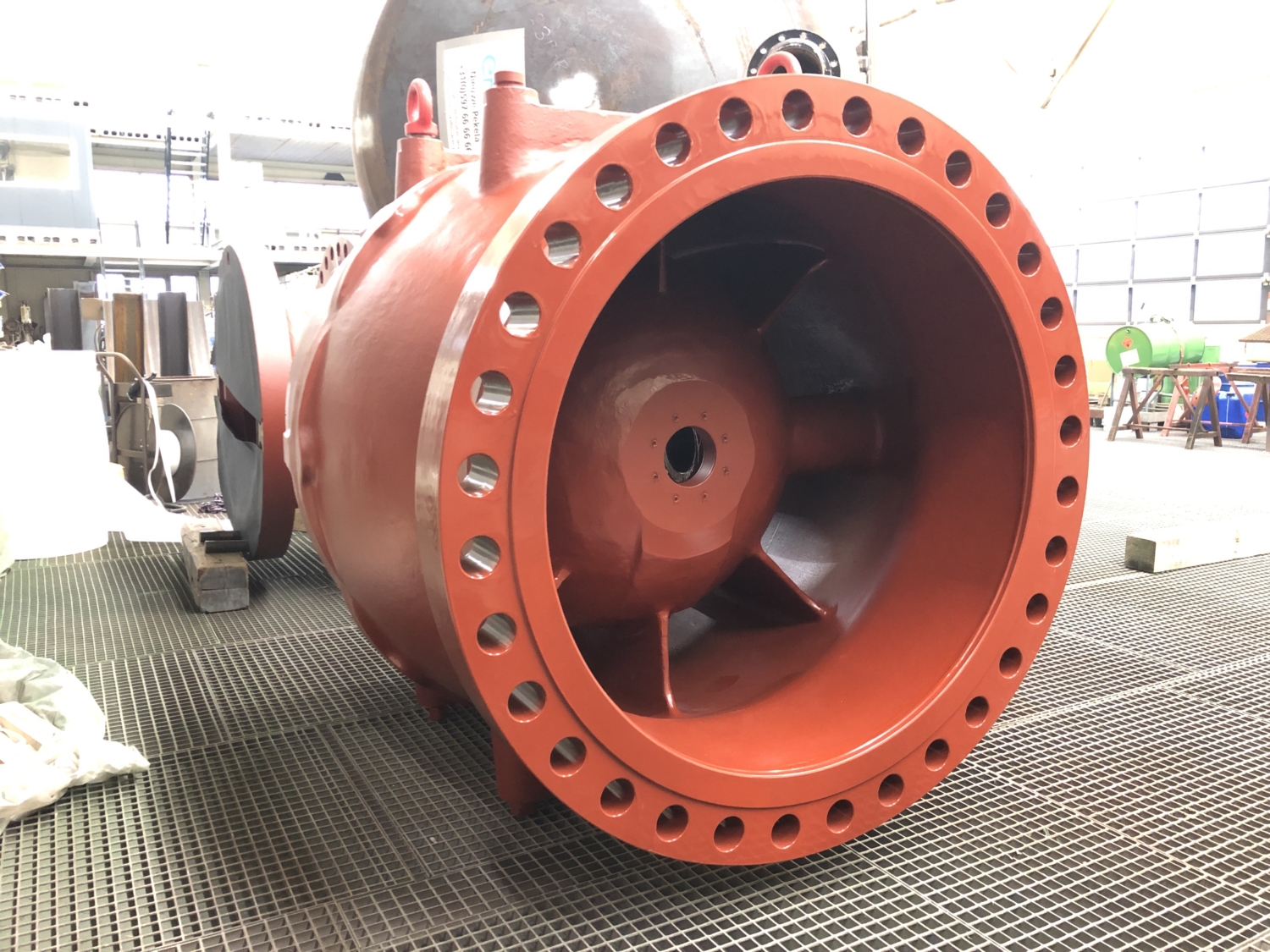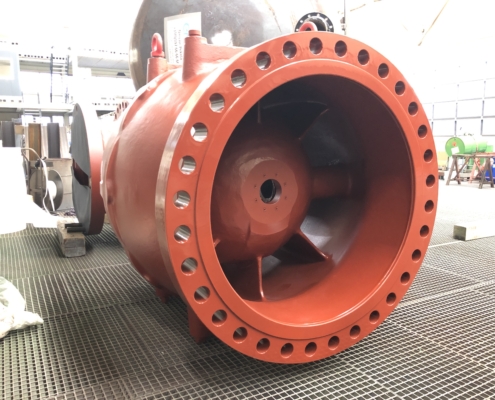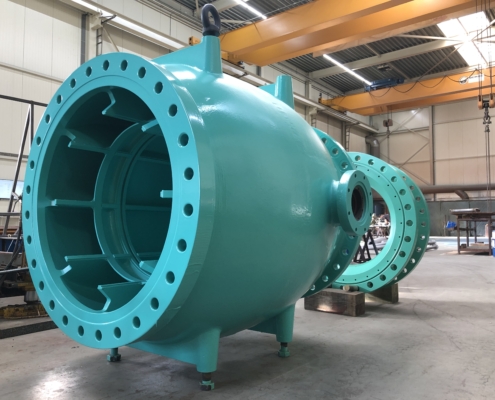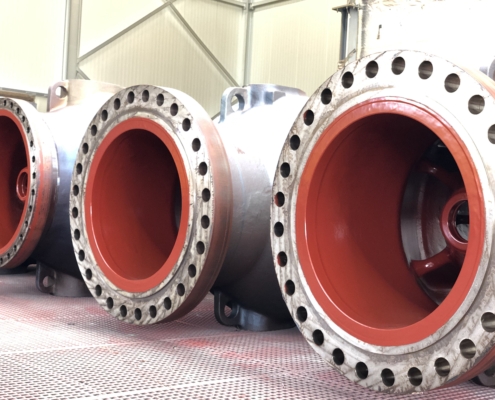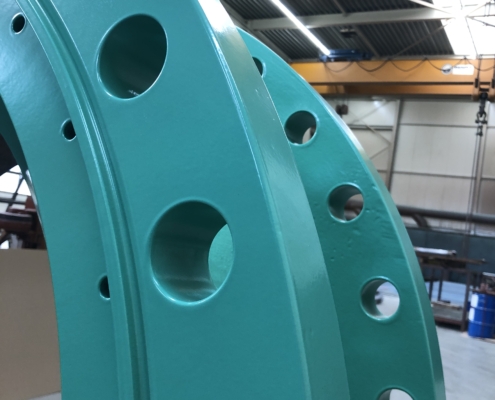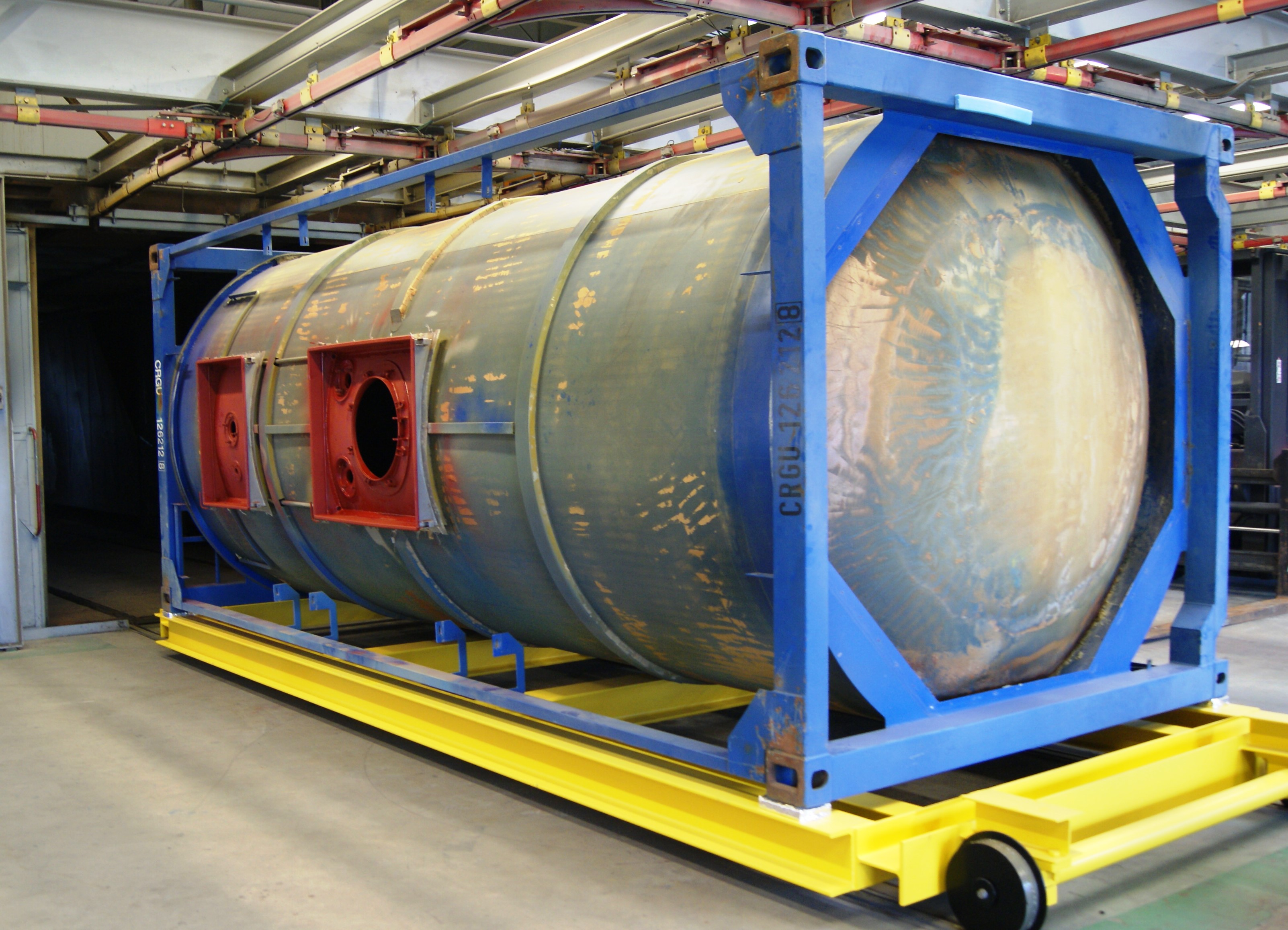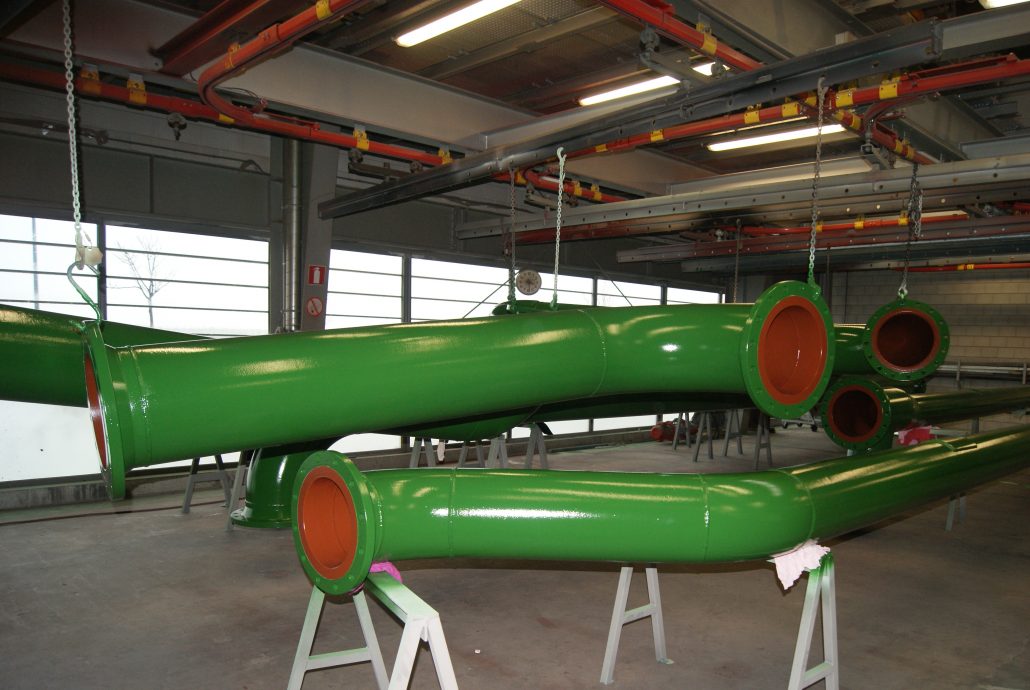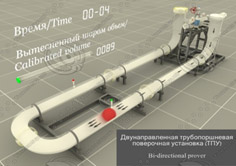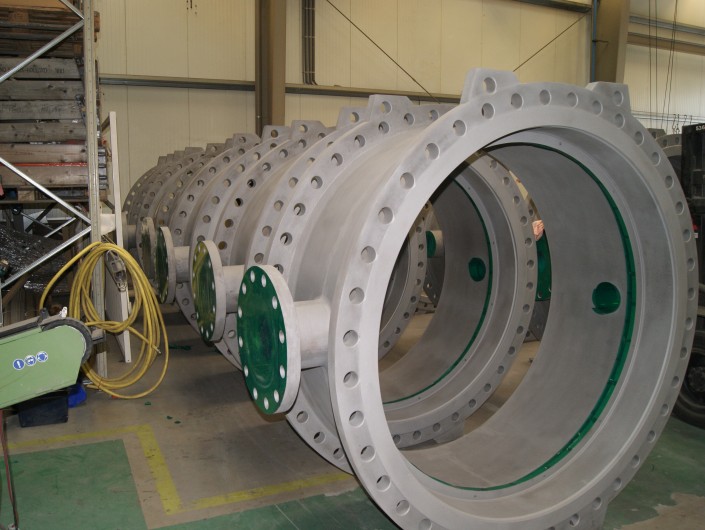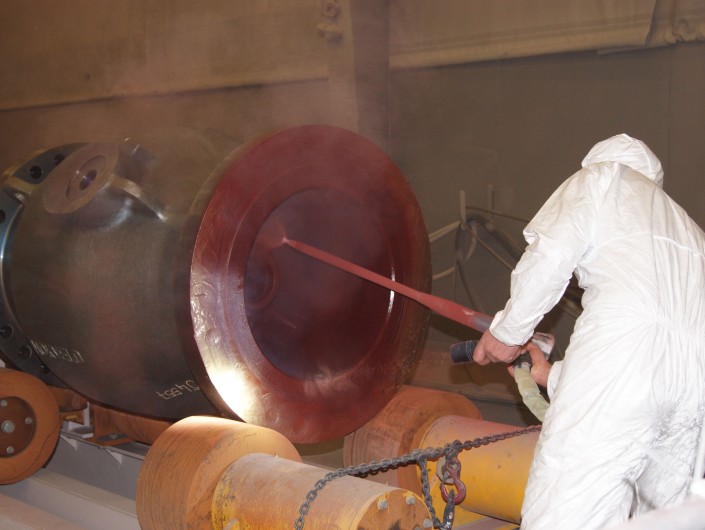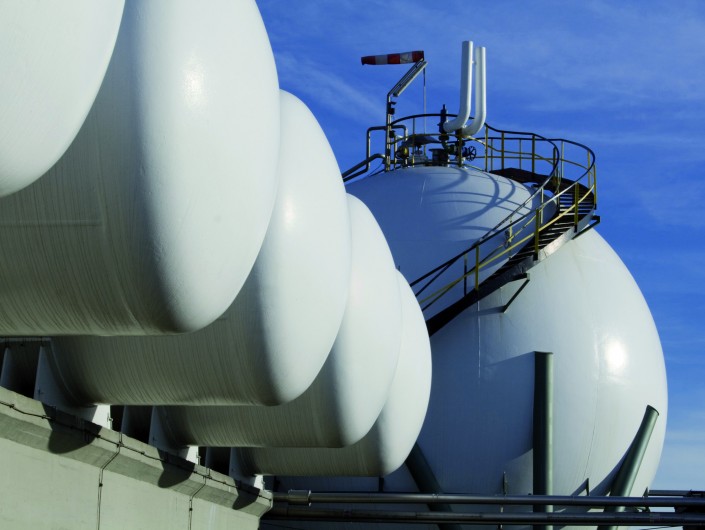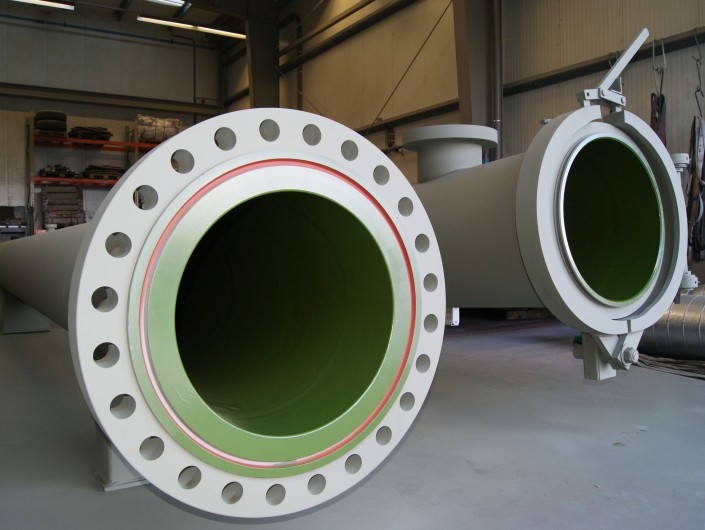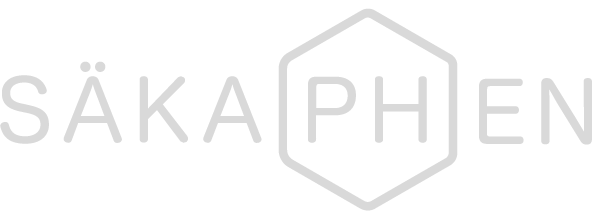Non heat conductive coating series
CP PHENOLICS B.V. introduced the non heat conductive phenol coating series years ago. This high quality duroplast coating gives an outstanding corrosion protection and is extremely suitable to protect the inside of steel vessels for storage of inflammable liquids classified as dangerous goods according to class AI/AII and B as well as for endangering non inflammable liquids. The coating is resistant to water vapour and extreme temperature fluctuations. Also excellent chemical resistance to acid media in high concentration
Areas of application:
- Pressure vessels (separators)
- Tank Containers
- Pipeline
- Air/Ventilation Tubes
- Pumps
- Valves
We also often use FBE coatings for the internal coating of valves. This Fusion Bonded Epoxy coating requires a special application technique. Especially when it concerns hard-to-reach places. It is always a process in which the workpiece must first be heated in the polymerization oven, after which the coating, which is in powder form, will be applied to the warm surface. This requires knowledge and experience in combination with the right technology, which we have fine-tuned to the highest level in recent years.
Internal tank lining with our CP Phenolics® baked phenol coating for excellent protection of ISO tank containers. All parts will be treated like, spill boxes, flanges, covers and siphon tubes.
Pipelines used for coolingwater , wastewater or onther aggresive liquids can be protected by internal CP Phenolics® baked phenol coating. Tubes used for air suction and ventilation can suffer from corrosions due to condensation, aggressive vapours, chlorine fumes or high humidity. When protected by heat cured phenol coating, lifetime will be extended and maintanance cost will be reduced.
CP PHENOLICS B.V. is experienced in internal coating of oil provers. The coating protect the metering skid prover loop pipes and makes them extremely smooth which guarantees the precise measurements. This shop-applied baked internal coating is also a multilayer system where every layer gets an oven treatment on a different time and different temperature schedule. During the final polymerization session the coating layers cross-links with each other on a molecular level. By this meaning an completely closed coating layer for gases and fluids is applied on top of the metal surfaces that needs protection. This in combination with the fact that the coating is “burned” into the metal surface offers the extreme high resistance.
Klik hier om uw eigen tekst toe te voegen

